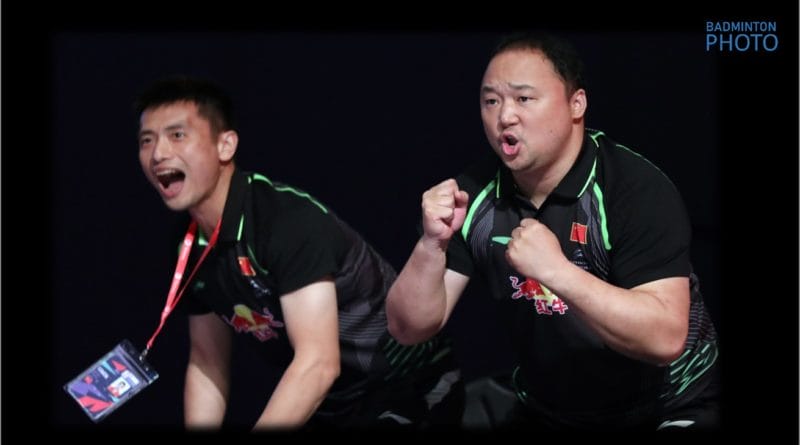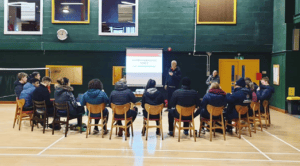The Player to Coach transition – challenges and pitfalls: part 2
Coaching and playing require different skills, it’s not just repeating what you did as a player
Good playing skills and experiences are valuable and offer advantages to the coach
Although past knowledge as a player can cause problems if you are not prepared
This is Part 2 of the challenges, misunderstandings that some people just don’t see
How many have you experienced?
Have you shared your experiences with a friend?
– – – – – – – – – – – – – – – – – – – – – – – – – – –
Have you read Part 1

The player to coach transition is full of potential pitfalls. I hope that in Part 1 you found some thoughts and that you felt challenged. That was one of my aims 🙂
Which of the points was the most impactful for you?
I’ve had a few people feedback to me and say that many of them are now obvious to them but weren’t in their first 6 months of being a coach.
If you’d like to contact me and explain how you dealt with any of the challenges, I’d love to hear from you. Send me an email at contact@badmintonandy.com and we can start chatting.
It can appear all very easy to move from player to coach – just stand on court, pass on your knowledge, feed shuttles and watch people improve 🙂 but is it really as easy as that?
– – – – – – – – – – – – – – – – – – – – – – – – – – –
I wonder how you will react to this advice, will you see it as negative?
My aim is to help, not criticise. However, I guess it’s more about how you hear my message and advice and I can’t control that. I must have written and re-written part of this post several times.
I’d like you to think about these 3 questions
- How do you react to the coaching challenges you face and to the people who directly challenge your badminton knowledge?
- How do others react to you when you coach them, especially when you need to suggest improvements?
- Are you interested and active in finding new information, going on courses, talking with other coaches?
My goal is to help you avoid the ‘traps’ and ‘pitfalls’ so you can take action before you stumble
How you hear this advice is up to you
I can’t control your thought process, you may feel challenged and stop reading!
– – – – – – – – – – – – – – – – – –
The challenges and pitfalls
Part 1
1. Expectations that are either misguided or misunderstood
2. Unconsciously biased towards your views (as a player)
3. “When I was a player”
4. Dealing with challenges and challenging people
5. Taking silence as agreement
6. Your journey and the challenges of coach education
Part 3
7. CPD, is it worth your time?
8. People asking for your advice or wanting you as a mentor
9. Not valuing discussion and actively avoiding it!
10. Struggling to know what you stand for
– – – – – – – – – – – – – – – –
3) “When I was a player”
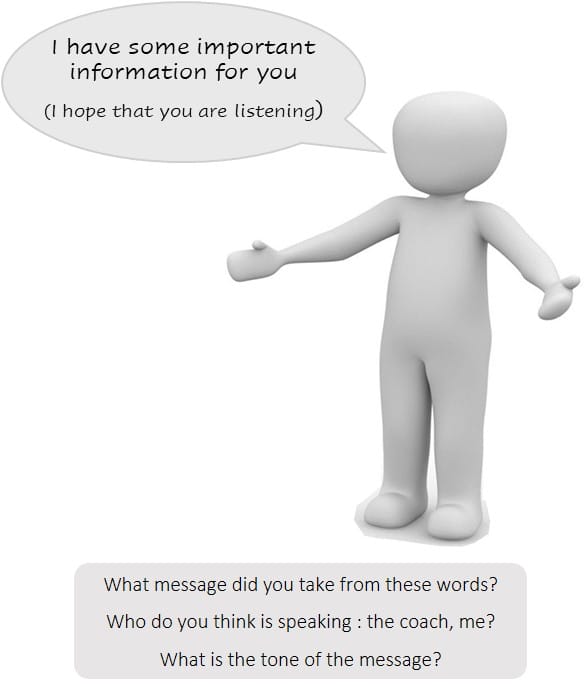 Providing examples and stories based on what you did as a player is important, but be aware of how often you use this method.
Providing examples and stories based on what you did as a player is important, but be aware of how often you use this method.
You must use your previous experience, you lived through it, hopefully, you learned from it. You know that your experiences helped you. I believe that you should refer to your own history.
I’m sure that during your development as a player you gained positive information, worked through problems/issues, became wiser. Therefore you must use this information.
How your words may be received
The tolerance of people to listen to your references, or stories (as they may see them) is variable. Be aware that it’s how people receive the message, not just what you impart that is important.
People tend to start making a judgment early in your stories, especially if they believe that they have heard them before. Be aware of this!
Some will love to hear your thoughts, others may start to become bored or even stop listening. You will not know how your message is received unless you consider the listener (the receiver).
The listener
- Do they ask questions after you finish talking: hopefully, they look engaged.
- Maybe they interrupt you and ask for more details: the why, when and how of your story.
- How do they respond to your questions: presumably you do ask them to check something?
Do you consider how your messages could be received by others?
Frequency
Continually referring to what you did when you trained and played will test people. However, you do need to pass information and it will help those you work with.
I wouldn’t worry too much about the frequency if you learn to re-package or adapt your message. The next part talks about this. However, if you hear concerns from your coaching friends or via the assistant coaches you work with, listen to what they have to say.
Be aware of how often you start your advice with “when I played/trained, I used to ….”
Your Message: Learn to reframe the content
You will need to be careful how you “package” your experiences/stories so that others do benefit.
How many different ways do you know, as it’s not always easy to avoid saying “when I …..” or “back in my day …..”
Have you tried
- Recognising what you would have done (when you were a player), and set up a practice to achieve that without referring to your past
- Giving others options (that include what you would have done as a player) but allowing them to decide
- Starting a statement with “Someone explained to me that if you ……… “, talk as if it actually has happened because it really did
- Waiting for someone to ask you (your opinion from your playing days), be patient and wait, they will ask!
Do not assume that everybody will value your message in the same way,
it may take time for others to value your references to your playing days
– – – – – – – – – – – – – – – –
4) Dealing with Challenges
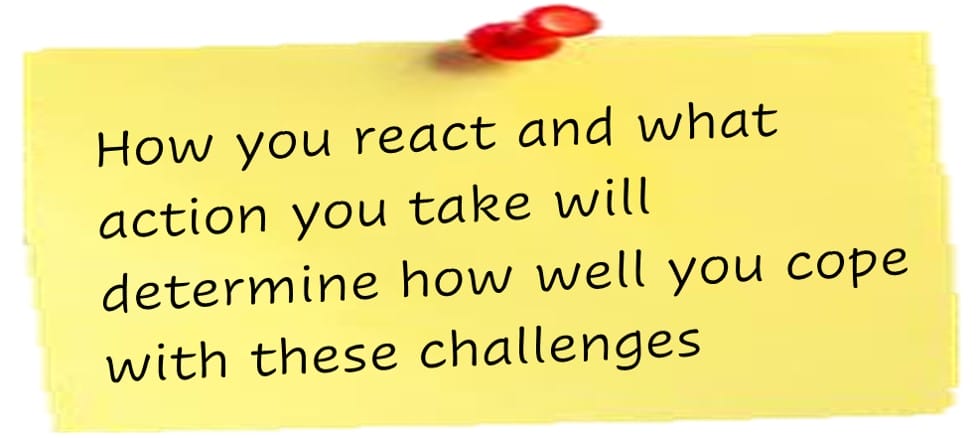 Challenges will come in many different ways and from a range of sources.
Challenges will come in many different ways and from a range of sources.
They are not always from people, organisations can suddenly challenge you and you need to be aware and ready. However, you may find that the greatest challenges come from inside you.
As you read each of these 10 points ask yourself how would you react
It’s important to ask yourself: how do I currently cope with this challenge or do I need to find out more, plus get some training.
Hopefully, you won’t experience no. 10 🙂
- Frustration with the motivation of others: you may find it difficult to accept that others don’t seem to want to improve as much as you did. They don’t have the dedication you believe that developing players need.
- Players’ mentality changes as they grow: Can you identify all these subtle changes, adapt and be happy with dealing with what seems to be a “new person” in front of you, every 5 years or so.
- Burning yourself out: You will be putting in either long hours or unsociable hours. Working early mornings and late evenings. The mental fatigue (possibly disillusionment or boredom) is real.
- You only develop Practice Performance instead of Game Performance: It’s very easy to work in a way that makes the player appear to be developing by producing almost perfect practice sessions. However, in matches, it appears as if they have learned very little. Be careful, you could be contributing to this! Are you feeding and setting practices to ensure the player is “successful”.
- Having to take qualifications: In most systems, you will have to start your journey in Coach Education from the lowest level. Your playing ability may not help you, in fact, it may hinder you during the course. Be prepared to hear things you disagree with, have not thought about or struggle to understand. The challenge is real when you move from doing (playing) to having to plan and teach.
- You apply for your first coaching job and you are successful: Your playing CV was enough but now they expect you to coach at all levels in the systems. You have to set programmes, hold meetings, write reports. All this on top of your court time. Oh, and they could expect you to lead a group of assistant coaches, some of which may challenge your views.
- You apply for coaching jobs and you are unsuccessful: It seems that your playing CV wasn’t enough as you didn’t have the required coaching qualifications of say, BWFL2. Anger develops as you believe you know more than many people who have that award, plus you’ve been a player and done it! How will you respond?
- Other coaches ask you questions: you wonder why other coaches are asking you for your opinion, you advise but they question why and what you do on the court. You struggle to cope with being questioned or believe that they are trying to trap you. Their questions seem endless!
- You are expected to act as an assistant coach: Senior coaches or senior players ask you to create practices that are different to those that you did when you were practicing. In fact, they point out that you keep doing similar work every week with no variations. Senior coaches question the theories behind the practices you set. Are you prepared for these meetings?
- Coaching isn’t as easy as you thought: the amount of physical work and mental preparation surprises you. It’s not the job you thought. The temptation is only to do the parts you like and think that you are good at. You decide to turn up, do your work and try not to engage with other coaches, administrators, or difficult players/parents. However, all these people are your clients in one way or another.
– – – – – – – – – – – – – – – –
5) Taking silence as agreement
When you were a player and a coach gave you advice and direction, how often did you ask questions to find out more?
Not that often I’d suggest. But did that mean you agreed with all they said?
Do you think that will be any different when you advise others?
Why would everyone accept everything you say without question?
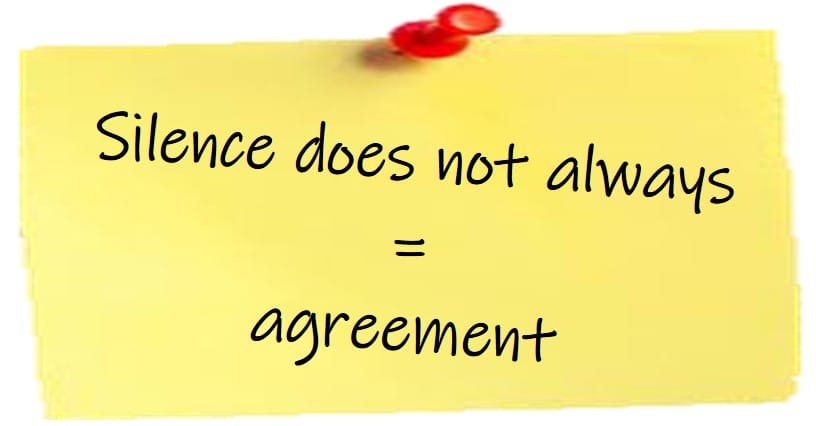 Far too often you may find that everyone will do exactly what you ask. Well, they will try to do what you ask, even if they can’t. Be aware that your previous playing reputation may give you so much kudos that even if the task seems too difficult or strange people will often follow you.
Far too often you may find that everyone will do exactly what you ask. Well, they will try to do what you ask, even if they can’t. Be aware that your previous playing reputation may give you so much kudos that even if the task seems too difficult or strange people will often follow you.
I’ve seen many strange concepts being promoted by people with good playing skills, so strange that they just didn’t make sense. However, players tried to carry out the instructions, didn’t talk back to the coach, and didn’t ask for more information. Because the “coach” was a good player they just assumed that all they said must be correct.
Often the culture is to accept all that the coach asks for. Appealing to coaches, maybe, but it could lead to problems as the only voice you hear is your own!
Have you given any thought to self-checking the things you say?
Who will you speak to, what will you ask, how will you react?
What can you do with your players?
- Become good at asking questions, become better at listening to the replies, and asking follow-up questions.
- Create mini discussions with your players based on what they think they need.
- Ask, maybe demand, feedback from your players. Start this when they 9 or 10 yrs old 🙂 Ask them to write down 3 things they really like about your sessions.
- Think about changing how you give some of your instructions, not all of them, just some of them.
- Create a team environment with you and your players and a dialogue (environment) that is free to disagree or request more information.
What can you do with other coaches?
- Actively work hard to find other coaches to talk with, to work with, to share your thoughts. Ask them direct questions on all sorts of topics.
- Be prepared to talk about aspects you believe you know about, and crucially (as it’s more difficult but rewarding), talk about ideas you have on topics you aren’t sure about.
- Consider that people are generally polite and think it may be wrong or rude to disagree with you. If they say very little, ask them directly: “what are your thoughts on that?”
- Be prepared to accept that someone else can always give you another viewpoint for you to consider. Their silence may hide a different thought. Leave space (silence) in the conversation for them to engage.
Create a supportive and challenging network, it’s tough to develop alone
I recommend that you open yourself up to the critical challenge. What do you think about that?
How often do you contact others and ask what they think, or could they help you understand an alternative viewpoint.
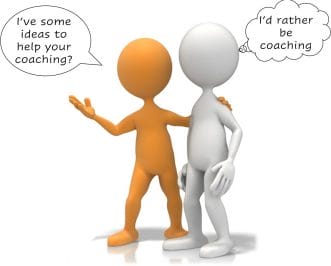 I’ve found that there is much to be gained from meeting with other coaches and talking openly about topics. It’s a great opportunity to hear something new, find a different viewpoint, or be informed that someone else has faced the same challenges.
I’ve found that there is much to be gained from meeting with other coaches and talking openly about topics. It’s a great opportunity to hear something new, find a different viewpoint, or be informed that someone else has faced the same challenges.
You may not like the idea of having a coach to coach discussions and see little value in it. You may decide that talking about coaching with other coaches (coach to coach) makes you feel uncomfortable.
Consider if this ‘difficulty’ is something from inside you and just your reaction to their words. It’s super tough to be successful without working with others and engaging in debate/exploration, especially during your player to coach transition.
The benefits of collaboration may surprise you. It’s not only the new information, the different outlook but you may just feel better talking with someone else. You do not always have to agree and that’s ok, in fact, it can be more productive if you both offer alternative thoughts.
Are you the only voice you hear or do engage in meaningful coaching-type discussions?
– – – – – – – – – – – – – – – –
6) Your journey and the challenges of coach education
Do you believe that coach education courses (BWF L1 & 2, UKCC L1 & 2) will make you a better coach?
Certainly, it’s fair to say that your playing skills could be far above the standard required for the coach education course. You are unlikely to improve any of your playing techniques or tactics by attending the course if you are already a good player.
However, that isn’t the purpose of attending!
Coach education courses can give you an uncomfortable feeling if you have been a good player …
why do you think that is?
Education: be aware
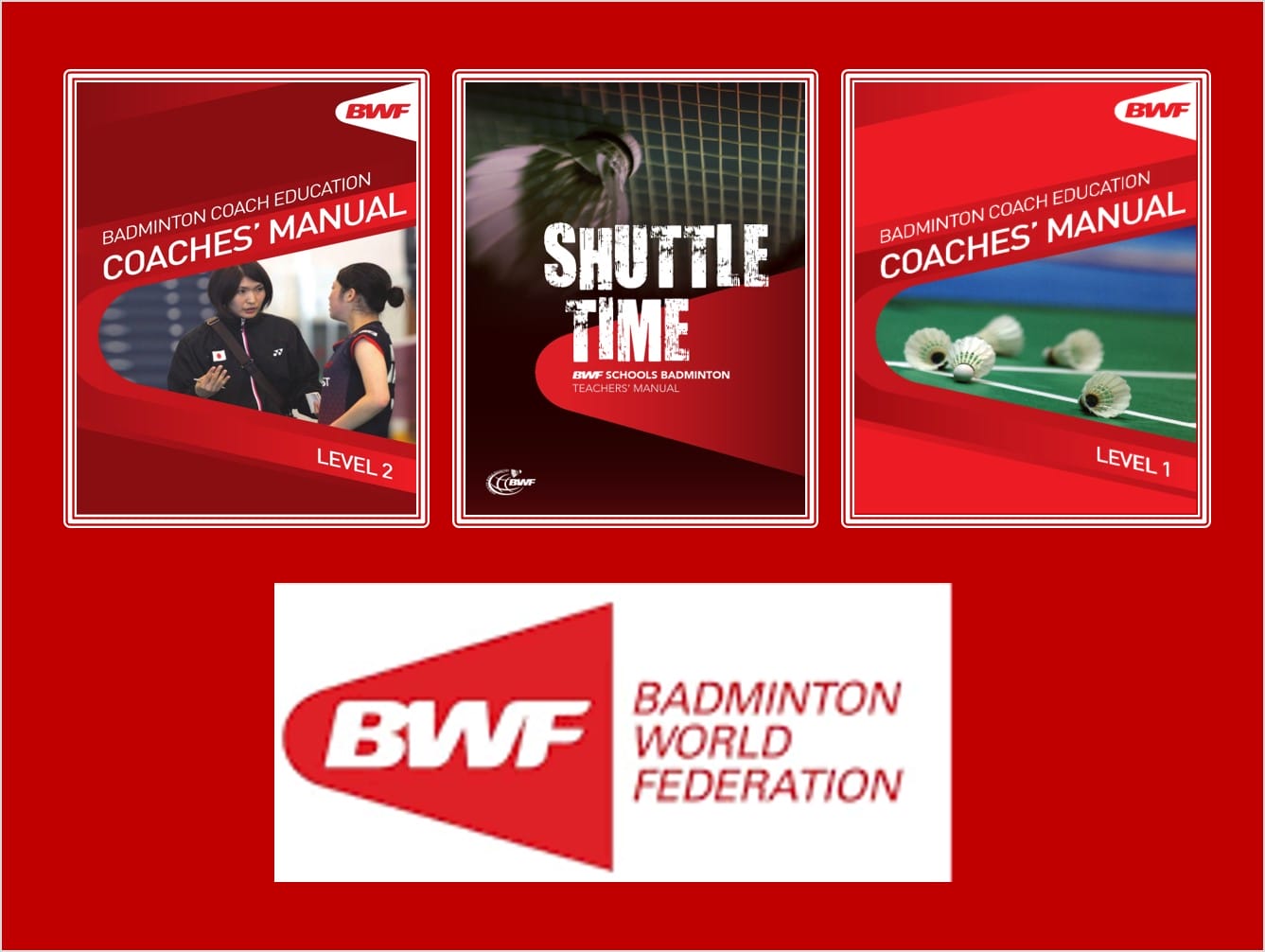 When you attend your 1st and 2nd coach education courses you may feel that the information being presented is obvious and not relevant to the game you just left. Worse still, you start to compare your playing skills to the others on the course.
When you attend your 1st and 2nd coach education courses you may feel that the information being presented is obvious and not relevant to the game you just left. Worse still, you start to compare your playing skills to the others on the course.
Be aware that all these thoughts will not help you during the course, in fact, they may even harm your chances of passing. The player to coach transition is full of potential pitfalls and you don’t need to start judging others.
Your playing skills and the tactics you used when you played may not be applicable and relevant.
There are sometimes courses run specifically for ex-players.
I’ve seen these advertised by Badminton Europe and often the entry requirement is that you must above been WR 150 or above. Unless you are extremely lucky or well informed you will probably miss the course. You may also decide that the cost is prohibitive. It’s certainly going to be more than £500 when your travel is included.
Why not click on this image to read about 21 Things you may not know how about the BWF coaching awards
Education: what to do
- Accept that a future employer will insist that you have qualifications. At this time it’s likely to be a minimum of BWFL2 and in a few years, you will need a BWFL3.
- If you are serious about passing then listen to the material and be prepared to work. Complete all the assignments on time and to standard.
- Reflect, reflect, reflect (for a while), and suspend any arguments until you have finished a course.
- I recommend that you find a mentor who can help you prepare for a coach education course. They will talk through those struggles unique to ex-players who attend.
- Take ‘foundational’ qualifications in other areas that will help: S&C, PT, massage, and nutrition are all good starters. Then continue educating yourself during the next 5 yrs in one or more.
- Be aware that when you played you probably didn’t fully understand the background, the logic to the coaching and training. Even if you were lucky enough to contribute how much can you remember. Seek out your old coaches/trainers and have a coach to coach talk with them, you may find it very educational.
Are you prepared to engage and find something of value?
It’s easy to dismiss the information being presented as it probably didn’t apply to you as a player
– – – – – – – – – – – – – – – –
Further reading
Do not rely on Coach Education to improve your coaching. When I passed my 1st Coach Qualification I was ready to go and coach ???? or so I thought ?
I had a structure to follow and had been taught how to plan a session, I could teach at least 6 basic strokes.
However, within 12 months, I faced these problems, click on the image to read more.
I wonder if you experienced the same feelings as I did ?
– – – – – – – – – – – – – – – –
In part 3 we will take a look at
.. CPD, it’s worth and how you can use it to progress
.. how people asking for your advice or wanting you as a mentor can be a problem
.. the fact you may not value discussion with other coaches and actively avoid it!
.. at the start of your coaching journey, you may struggle to know what you stand for
– – – – – – – – – – – – – – – –
As always, I’m very grateful if you have read this far
I hope you enjoy the suggestions. Is there anything that you’ve read that has helped or that you disagree with?
I need your help to help others during the player to coach transition
Why don’t you send me an email, I’d love to hear your views contact@badmintonandy.com

